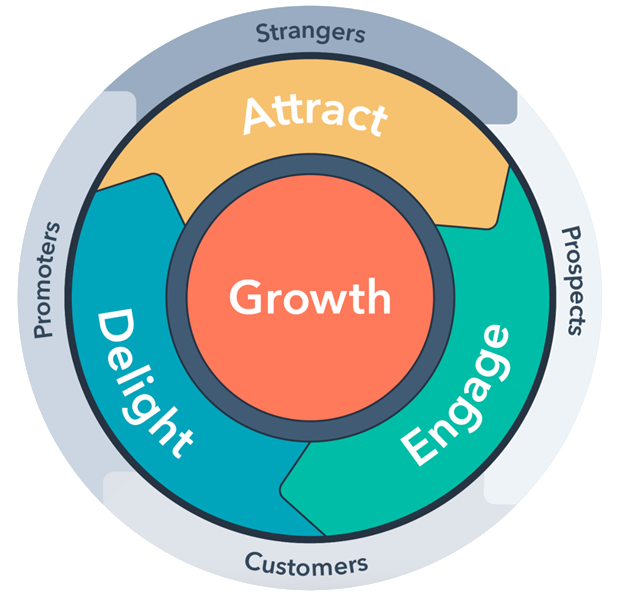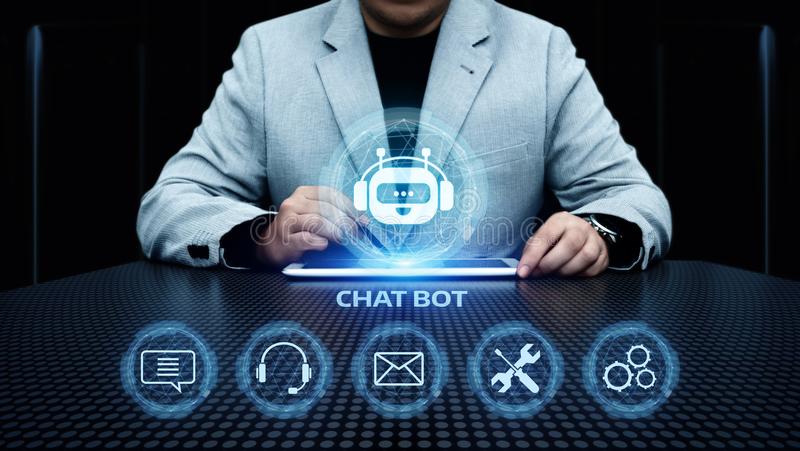You may be familiar with the inbound methodology – the business approach of turning strangers into visitors, leads, customers, and then promoters.
It’s about meeting people where they are – by marketing with educational content instead of interruptive ads, and by offering helpful solutions instead of using pushy Sales tactics to close the deal.
But the inbound methodology doesn’t end when a prospect becomes a paying customer. Did you know that there’s also an inbound customer service framework?
What is Inbound Customer Service?
Inbound Customer Service is a method of attracting, engaging, and delighting your customers to turn them into loyal advocates of your business. By solving customer problems and helping them achieve success using your product or service, you can delight your customers and turn them into growth engines for your business.
To help you balance the need for day-to-day reactive customer support with the need to invest in customer success, we’ve developed a new, customer-first framework that provides a foundational strategy for outstanding customer-first support.
Inbound Customer Service Framework
The inbound methodology we created includes three stages: Attract, Engage, and Delight.

Inbound method
Attract
Use an inbound approach to attract new leads based on resources and positive feedback from your current customers. You can attract current and future customers to your services by creating solid content and educational videos and blogs.
- Ads
- Video
- Blogging
- Social Media
- Content Strategy
Engage
If the resources you create aren’t enough, you need to engage the customers who are engaging with you. By doing things like quickly triaging and responding to incoming requests, resolving their issues as quickly as possible, and providing different channels for them to reach out for help, such as phone, Email, Social Media, and live chat.
- Leads Flows
- Email Marketing
- Lead Management
- Conversational bots
- Marketing Automation
Delight
By delighting your customers and keeping them engaged with your business, you can activate them as loyal advocates who will leave you positive reviews, refer friends and colleagues, and provide helpful feedback. To identify these happy customers, you should regularly conduct customer feedback surveys to gauge their satisfaction levels.
- Smart Content
- Email Marketing
- Conversations inbox
- Attributions inbox
- Marketing Automation
Power has shifted – from businesses to customers.
The rise of social media also plays a role in this shift in power. If a customer has a good experience, they can share it. If they have a bad experience, they can share that too. The ability for a customer to take their story and turn it into a story for other customers—good or bad—is a uniquely 21st-century concept that we’ve seen produce really good or really bad results for businesses.

Today, word of mouth (WOM) is the most important channel for businesses to tap into. Think about it: If a customer tells their friends about a great experience they had with a business, their friends are more likely to choose that experience over a myriad of other options. Customer service is what can set your business apart, and your happy customers can truly be your best marketers.
Customer Service vs. Customer Support vs. Customer Success: What’s the Difference?
1. Customer Support
Customer support is about being responsive to your customers’ needs. It’s about being there for your customers, whenever they need help, whatever they need help with. At its core, customer support is a transaction and interaction that is initiated and ended by the customer.
2. Customer Service
Customer service is more proactive. It’s about telling the customer “I have something for you” instead of the customer saying “I need something from you”. Service is about a business guiding the customer.
If businesses can provide both customer support and customer service by actively engaging and proactively guiding, they are in great shape.
3. Customer Success
Customer success is something that is business-initiated and it is doing something that customers may not even know they want or need. It requires anticipation.
Customer success is about extending value, both for the customer and for the business. It can involve upselling or cross-selling by suggesting other products or services to the customer that fit what they’ve already purchased. But here are the keys to achieving customer success:
Businesses only earn the opportunity to do this when they have demonstrated that they can actively support and actively guide. If you think about it, customer success sits at the top of the customer-centric pyramid, where all three come together: Customer success is where customer teams want to be, but they can’t get there if they don’t pick up the phone when customers call.
Building a customer-focused team
If you don’t already have a customer support or customer success team, it’s important to start one — and the sooner the better.
Building a customer-focused team
You can start with a customer support team or small team of just a few people — or maybe even just one person. These small teams are often very in tune with the voice of the customer and tend to provide exceptional service.
The key to providing great customer service—and doing it well—is twofold: You need technology, and you need great people. No matter what your role is in your business—sales, marketing, or customer service—everyone should have a customer mindset and think about how to solve problems for them. If you have a customer-centric culture, you’ll be able to grow faster than other businesses.
When it comes to hiring for a customer-focused team, we recommend hiring based on merit and values as well as skills training – because it’s much easier to teach someone how to use software than it is to teach someone why it’s important to always be customer-focused first.
How customer service will change
There will be a lot of incremental changes that will transform the face of customer service over the next few years.

Customer service changes
Everyone is talking about how bots and AI will impact every industry, and the customer service space is no exception. These tools will bring more chatbot-powered websites, helping customers get the service they demand at speed. These technologies will also change the way customers communicate with businesses – moving away from traditional phone calls and emails, towards chatbots and live chat.
Another change we will see over the next few years will be a shift in how businesses choose to invest their time, energy and money – and we think that, over time, more businesses will invest in customer service as a competitive differentiator – otherwise they will be knocked off the map by other businesses offering similar products with better customer experiences.
We conducted research and found that while 80% of businesses think they provide superior customer service – only 8% of consumers actually think businesses do.
It is important for businesses to invest in listening and analyzing the voice of the customer to close and meet more customer expectations to drive the flywheel effect of attracting, educating and growing customers upwards.
Source: Hubspot
Comment Policy: We truly value your comments and appreciate the time you take to share your thoughts and feedback with us.
Note: Comments that are identified as spam or purely promotional will be removed.
To enhance your commenting experience, consider creating a Gravatar account. By adding an avatar and using the same email here, your comments will feature a unique and recognizable avatar, making it easier for other members to identify you.
Please use a valid email address so you can receive notifications when your comments receive replies.
